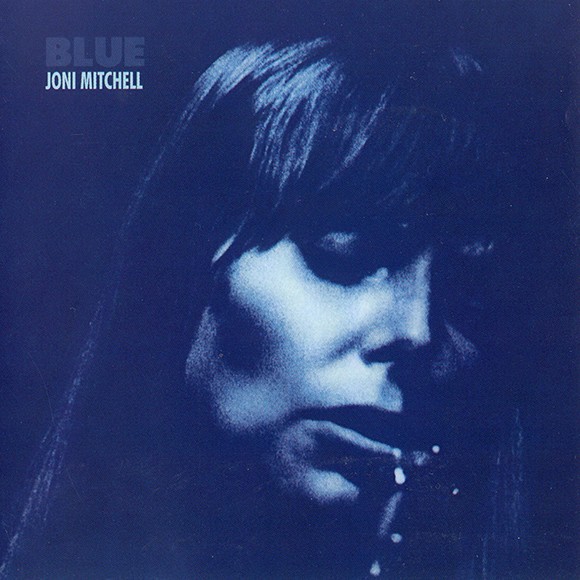Welcome to AdHoc’s Femme Fridays, a weekly column highlighting the work and talent of trailblazing femmes throughout music history. In this week’s edition, we’re honoring the sensational Joni Mitchell, whose celebrated album, Blue, came out 47 years ago today.
Blue is a mutable shade. In the sky, it’s all sweet radiance; in our seas, it churns and laps. It’s an oscillating hue, but it carries with it a note of melancholy: We feelblue. We are blue. Some of us sing the blues—those sorrow songs birthed of Blackness, of plight. Joni Mitchell sang the blues, too, albeit of a different sort: hers was a blues of the mundane, of the individual, needling out her heartbreak with an Appalachian dulcimer. Her 1971 album, Blue, ebbs and flows like the sea, her voice weathering each pitfall and hard knock with breathtaking serenity.
From imagistic moments like, “I want to wreck my stockings in some jukebox dive,” on album opener “All I Want,” to the elusive divinity of “you’re in my blood like holy wine,” on the classic “A Case of You,” Mitchell’s Blue sows a public world out of her intimate musings, one that always seems just shy of tapping into some feminine truth. In a 1999 interview with Ottawa Citizen, Mitchell recounted the first time she performed Blue for a group of her male contemporaries:
“They were embarrassed for me. The feminine appetite for intimacy is stronger than it is in men. So my songwriter friends listened and they all shut down, even Neil Young. The only one who spoke up was Kris Kristofferson. ‘Jesus, Joni,’ he said. ‘Save something for yourself.’”
It isn’t uncommon to find descriptions of Blue that lean on Kristofferson’s famed quote; yet they’re missing something. What is there to save when you are a woman in the public eye, whose every relationship— from Graham Nash to James Taylor— is exposed for public consumption? What Mitchell understood, whether deliberately or not, was the power of her own self-representation: she released an album so rich in detail and soul-bearing that it could scarcely warrant poor criticism, especially when touched by her gentle acoustic plucks and fluttering voice. The strength of Blue, and of Mitchell herself, is the ability to take that dangerous stab at honesty and weave it into something beautiful.

